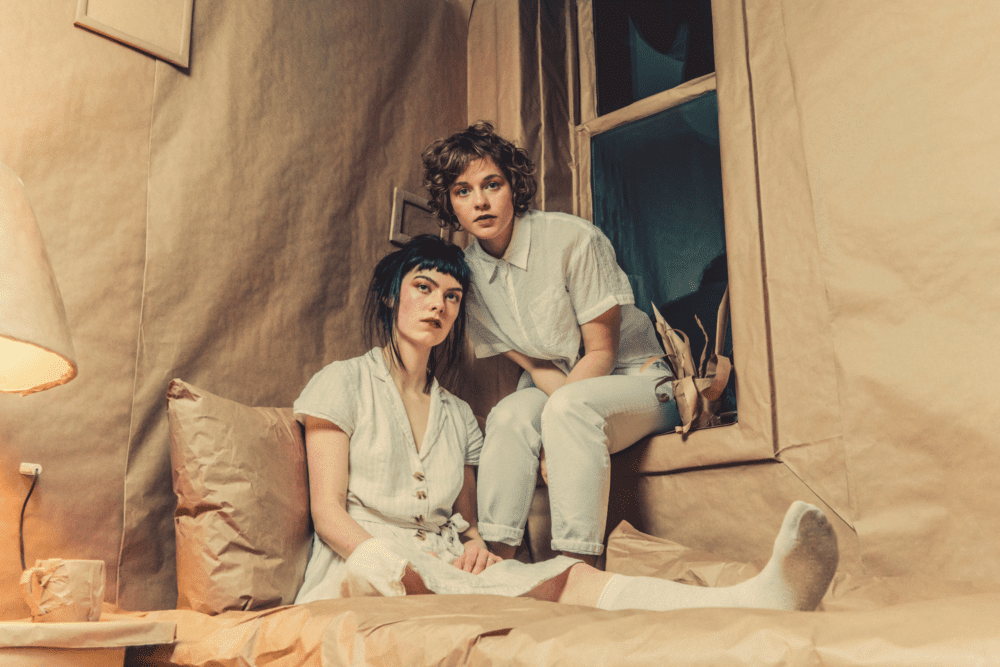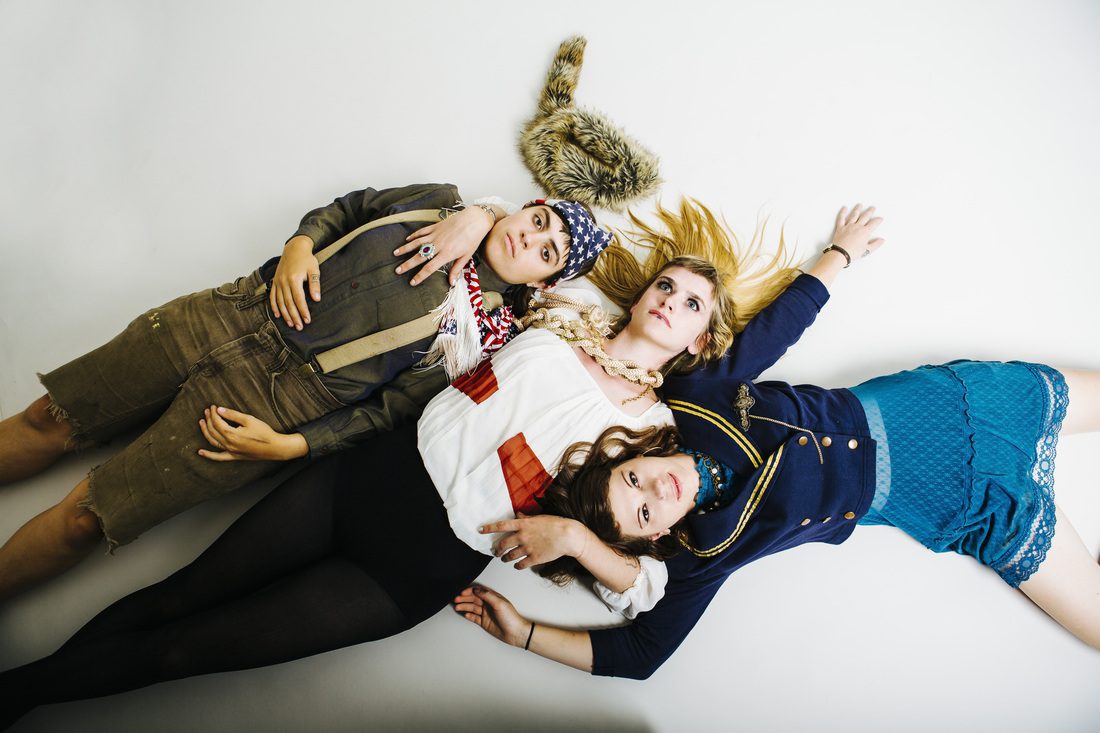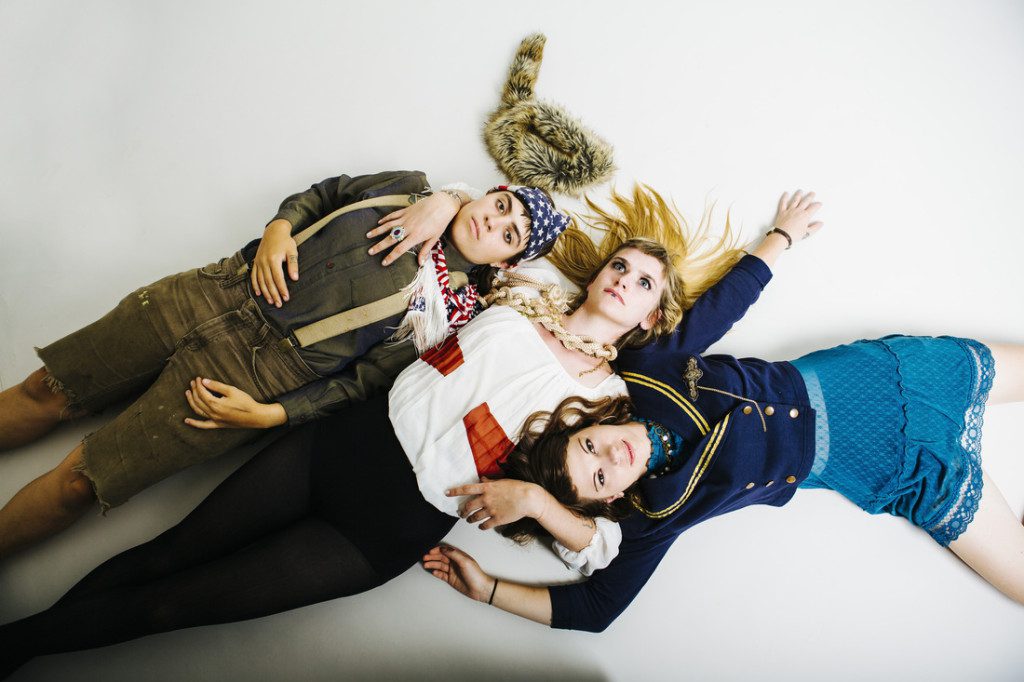INTERVIEW: Montreal Duo The Leanover Discuss New Album, “Portico”

The end of July brought the first official release from The Leanover, comprised of Ali Overing and Lou Seltz. Written over the course of several years, the 7-tracks on Portico were inspired by the idea of liminal spaces – whether physical, like a balcony or porch, or metaphorical, as in the space between privacy and publicity and the confinements of human existence. The Montreal duo sought out isolation to create the personal project and recorded Portico in a cabin buried deep within the Laurentian Mountains with And The Kids producer Megan Miller and Julien Beaulieu, with a handful of musician friends filling out their roster.
Ahead of some live dates, Ali and Lou explain the themes on Portico, reflect on recording in a cabin, and reveal some information on their upcoming music video.
AF: Walk me through the connection between the album’s title and the overall lyrical themes of Portico. Since songs from the album were written over several years, what ideas connected them enough to make a cohesive project?
We’ve both spent the last five-to-eight years of our lives in constant flux in terms of our living situations. We both finished school, were each cursed with our own international love dramas, experimented with the stability of nine-to-fives and battled between our desires for both a comfortable domestic life and an adventurous, migratory existence. Porticos represent the overlap between the public and the private. They are a literal structure that surrounds you even when you choose to leave the confinement of a building, and represent, for us, the limitations of tradition and expectations. All of the songs in Portico are linked by this idea of confinement. This can be in terms of actual space, mental spaces, time restrictions, interpersonal relationships and the limitations put upon us by our own bodies. The album deals with these limitations by working through them one by one, celebrating the tangible realities and inspiration that they bring about.
AF: Since recording this project, do you now see confinements as majorly negative or beneficial things?
AO: Today I’m feeling like the limitations are mostly a good thing. I’m a pretty scattered person, am very easily distracted, and can’t make a decision to save my life. I’m a person who really struggles to buy anything online, for example, because the idea that I might be able to find something better if I just continue to look really paralyzes my ability to choose. I think that this has really affected me artistically over the past few years, especially when I was traveling. The idea of having a concrete space in which inspiration can thrive and limited tools to work with really helps me continue to create.
AF: What was it like recording in a cabin?
AO: There’s really nothing more satisfying than having a particular goal in mind with a group of people and setting off for a few days to achieve that one goal. Every day that we were up north was spent living and breathing these recordings from the moment we woke up until we went to bed at 3 a.m. While the complete lack of distraction was fuel for inspiration, it did present a set of challenges that we wouldn’t have faced in a studio setting. For one, we had to make sure that we had everything we needed before we went up there. The house is in Riviere Rouge, two and a half hours away from Montreal, with no music store anywhere nearby. The car was packed to the brim with all of our instruments and an entire studio setup complete with desktop computer.
Megan Miller (of And The Kids) engineered our record and she had to make tough decisions about recording equipment without having ever been to the cabin. We decided to change our recording space when we got there to a big A-framed space. The room presented unique benefits and challenges. Capturing the drums with not-too-much echo took godly patience from Megan and Erik. It was nice to have limited tools and these unexpected experiments. It allowed us to weave inspiration around what we had instead of becoming hyper-picky and indecisive about our choices.
AF: Are you planning any visuals for the album?
We have so many ideas in mind for different videos for this album. However, given our status as an independent band, we’ve decided to dedicate ourselves to just one beautiful video. Emily Soussana and Andrew Scriver of Potato Cakes Digital are working on a meticulously hand-drawn animated music video for “Forward and Back.” We don’t have a date of release yet but we’re so excited about the direction that it’s moving in so far.
AF: What other artists/groups did you find sonic inspiration from for this project?
LS: I think we each listen to and draw inspiration from quite different ranges of music, which sometimes conflicts, but I think is ultimately why we are drawn together as a band. The way I think about music is shaped a lot by psych and prog – Talking Heads, CAN, King Crimson. And when I first started playing with Ali I had close to zero experience on bass but our drummer would come into my room in the mornings before our practices and put on The Roots’ Organix and Pixies while I was still sleeping, which I think helped create structure for my otherwise outsiders’ interpretation of bass on these songs. Ali and I shared a lot of music as well though – when we first started playing together I was listening to Cate Le Bon’s album Crab Day on a daily basis and think we both heavily absorbed its discordant minimalism, as well as Lizzy Mercier Descloux’s bouncy weirdness and the sense of wonder in Life Without Buildings (who also ended up giving us our project name).
Follow The Leanover on Facebook for more updates, or catch them on tour at one of the dates below.
UPCOMING TOUR DATES:
8/15 – Peterborough, ON, Canada @ The Garnet (with Peachykine, Erika Nininger, The Kommenden) RSVP
8/16 – Toronto, ON, Canada @ The Garrison (with Blonde Elvis, Johnny De Courcy, The Kommenden) RSVP
8/17 – Ottawa, ON, Canada @ House of TARG (with Sparklesaurus, The Monotymes, The Kommenden) RSVP
8/31 – Montreal, QC, Canada @ The Diving Bell Social Club (with Motel Raphael, BBQT, Gullet) RSVP



